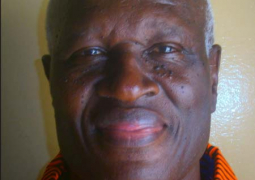The Special Criminal Court yesterday convicted and sentenced one Sheriffo Manneh, a resident of Wellingara village, to death by hanging, after he was found culpable for the murder of one Saikou Gaye on 12 July 2011.
However, the court acquitted and discharged Babucarr Senghore, Alhagie Manneh and Alieu Ceesay.
Justice Emmanuel Nkea, in his judgment, stated that the four accused persons were jointly charged with conspiracy to commit murder and murder.
The particulars of offence stated that the accused persons on 12 July 2011, at Wellingara village in the West Coast Region, conspired to and did in fact murder one Saikou Gaye, by beating him to death.
The judge added that the prosecution called eight witnesses in support of their case and tendered exhibits.
He added that apart from the 3rd accused person, Sheriffo Manneh, who testified in his defence, the 1st accused Babucarr Senghore, the 2nd accused Alhagie Manneh, and the 4th accused Alieu Ceesay, all decided to rely on the evidence adduced by the prosecution for their defence.
Justice Nkea said the prosecution’s case centered on the testimonies of PW1, PW2, PW3, and PW4 who were at the scene of the crime.
He said according to the witnesses the 1st accused came out and engaged the deceased person in a fight, and the 3rd accused joined in the fight and in the process hit the deceased with a bench, who then fell and started bleeding from the head.
The judge pointed out that the 3rd accused in his testimony in defence admitted that he fought with the deceased that night, and also hit the deceased on his head with the bench.
He said the 3rd accused also said in his defence that he only did so in self-defence, as the deceased had a broken bottle and a stick in his hand.
Still in his judgment, the judge added that the evidence adduced by the prosecution left no iota of doubt that Saikou Gaye was dead.
“I hold it as a fact that the prosecution had proven the death of Saikou Gaye with the certainty required by the law,” the judge stated, adding that the evidence on record showed that the very first fight was between the 4th accused person and the deceased.
There was no evidence on record that the deceased sustained injury in that fight.
“Not having seen any evidence on record linking the 2nd and 4th accused with the fatal injuries on the deceased,” he continued, “I am inclined to hold that the deceased did not die from an act or omission of the 2nd and 4th accused persons,” he said.
Justice Nkea added that the prosecution failed to prove the participation of the 2nd and 4th accused persons in the murder of the deceased.
“I hold that they did not participate in the murder of the deceased. There was no strong evidence that the 1st accused was the principal actor of the fight with the deceased,” Justice Nkea further stated.
He added that there was no evidence on record that the 1st accused solicited the assistance of the 3rd accused when he fought with the deceased.
“I hold that the 1st accused did not conspire, neither did he participate in the death of the deceased. The prosecution had failed to prove the offence of murder against the 1st, 2nd and 4th accused persons with the certainty required by the law,” he added.
The issue of conspiracy was also not borne out by the evidence, he went on, and added that the law compels him to acquit and discharge them.
He added that since it takes at least two to conspire with the 3rd accused, he did not conspire with anybody to kill the deceased.
However, he added that he did not believe the evidence of the 3rd accused when he testified that exhibit C was written by the police, and he was merely forced to sign it.
There was no evidence that the 3rd accused was engaged in a fight with the deceased, and there was no evidence of an attack on the 3rd accused.
“The hitting of the deceased was unjustifiable and unlawful. The defence of provocation cannot avail the 3rd accused in the circumstances. I hold that the 3rd accused caused the death of the deceased, and that the death was caused with malice aforethought,” he said.
Having held the defence of provocation and self-defence do not avail the 3rd accused in this matter; it was obvious that the prosecution had proved the case of murder against the 3rd accused with certainty required by the law, according to the judge.
He consequently convicted and sentenced the 3rd accused accordingly.



